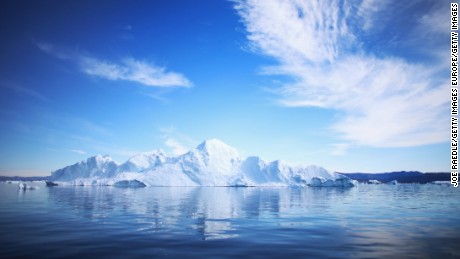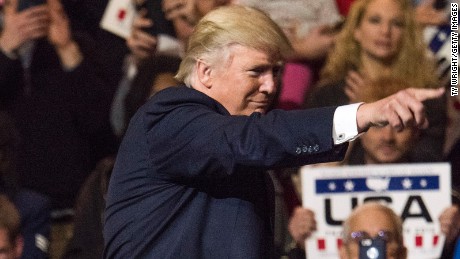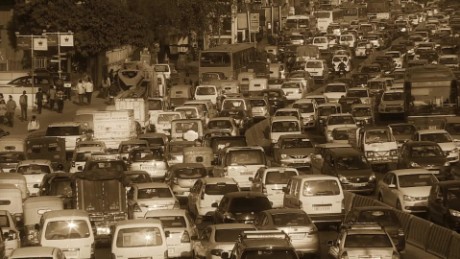(CNN)While the world has been working to reduce carbon emissions to combat climate change, there's been a troubling spike in another dangerous gas.
Methane levels in the atmosphere are rising faster than at any point in the past two decades, according to new research.
The findings are presented by the newly-released Global Methane Budget published Monday -- part of an effort by 100 international scientists to understand just how much methane is rising, and why.
While methane is less prevalent in our atmosphere than carbon dioxide, according to a statement from the Global Carbon Project, it "(traps) 28 times more heat."
Robert Jackson, a co-author of the report and Stanford University professor, said: "I think (people) should be concerned. At the same time we are trying to stabilize carbon dioxide emissions, methane is heading in the opposite direction."
"It is dire," he added.
Dangerous spike
Researchers say methane gas emissions spiked during 2014 and 2015 at astonishing levels.
Concentrations in the atmosphere increased by 10 or more parts per billion, a significant surge from the 0.5 parts per billion by which had been recorded in the early 2000s.
The surge was first noticed in 2007, and since then the levels have gotten much worse.
The exact reasons behind the increase are unclear, but, in an editorial published in the journal Environmental Research Letters, scientists cite agricultural production and increasing livestock, alongside fossil fuel exploration.
"Many people would point the finger at the oil and gas industry first -- but agricultural sources are bigger," Jackson said.
Rice production and livestock both emit methane into the atmosphere, but Pep Canadell, another co-author of the editorial, says that there are challenges in curtailing the spread of methane from either source.
"Countries are very concerned -- particularly less developed countries -- to ensure that there's enough food production, excess food production, to meet all (their) needs," Canadell said.
"Constraining greenhouse gases is an additional pressure on countries that mainly have opted not to do much about it so far, because the priority has been to secure the levels of food production that are required," he said.
What happens now?
Scientists are calling on the international community to commit to preventing any further increase in methane emissions.
Otherwise, they say the objectives of the Paris climate agreement, which went into effect in November, could be in jeopardy.
Greenhouse gas emissions must stop completely in order to stabilize the climate, Canadell warned.
"The entire package of greenhouse cases (carbon dioxide, nitrous oxide, and methane) should be at peak emissions. And, from now on, they should start going down all the way to zero by the end of this century," he said.
If they don't, temperatures could rise in excess of the two degrees Celsius above pre-industrial levels set forth by the Paris agreement. And the results of that could be disastrous -- droughts, floods, global warming, severe weather.
Uncertain future
One solution Jackson has proposed is that the agriculture sector look at new innovations that enable rice to be grown with less flooding, which would help to cut methane emissions.
"Most rice is grown in flooded areas. Methane is given off in flooded soils. If we could grow rice that required less flooding, we'd slash methane emissions," he said.
Canadell said countries like China had emerged as leaders against climate change, and raised concerns over what might happen if US climate policy shifts under the incoming Presidential administration.
"There are two components here," he said. "(Methane) emissions in the US have been declining for the last number of years," he noted, "...but there's another component -- not following the leadership of President Obama."
"In effect, what's going to happen to other countries if the perception is that the US is not doing as much as the US promised before, and therefore other countries may not do the things they promised to do?" he said. "This is all a question mark. We don't know."
He also added that the focus on climate change, including reducing methane emissions, must be on stabilizing the climate -- not fixing it, per se. That goal would be unattainable.
"Whatever damage we do now is irreversible in human time scales," he said.





No comments:
Post a Comment